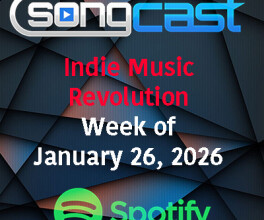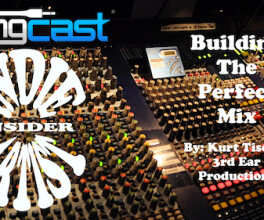It’s the end of year and it’s a great time to figure out what you’ve been doing with your music and how to make it better. Last year, I suggested some ways to look at the analytics of your music without getting too analytical.
This year, I’ll suggest the same with the added that wrinkle that when you figure out something isn’t working, drop it. The best way to get things done, after all, is to do less things.
To do this, literally get a pen and paper and write this stuff down: your website, all your social media, all the places your music is available online, all the places you’ve played this year. You can even draw a little table if you like. Then as you go through everything, write down how it worked, the metrics (if you have them), the time it took to manage, the costs involved.
Web presence
Last year, I wrote about making your website “agnostic” — in other words, that it doesn’t require someone to have a membership to a service to use it, like Facebook. This year, when you take stock of your website, look at how much you spent and how well it worked for you. If having a website is a chore or an expense to keep up, consider buying a domain name and redirecting it to your preferred social media.
I gave similar advice in regarding social media this year: pick one. This is easier than looking at metrics and figuring out what works. Just pick the one that works for you, make sure it’s visible to everyone, and focus on that one.
I’m not kidding about the get rid of it aspect: if your fans aren’t active on your Facebook page, consider deleting it completely. (If that’s too drastic, just deactivate it and see if you missed it next year when you do an inventory.) If Instagram is a pain to update, delete it. If no one follows you on Twitter, lose it.
Figure out how you sell your music
All this advice applies to how you actually sell your music too: make it agnostic and lose the services that are more trouble than they’re worth. You want the most people to find your music. Unfortunately, in our world of operating system specific ecosystems, there is no perfect solution. While Bandcamp gives fans the option to download in their preferred format, most fans are just going to look for you on the ecosystem they use: iTunes or Google Play. And while you can use a service (like SongCast) to deliver your music to the most popular stores, it’s a great time to figure out what isn’t working and simplify.
Where you play
On one hand, I’m a fan of playing a variety of venues and events. On the other, after doing that, figure out what sucked and make a note not to play again. Unless you have some advance knowledge, it’s hard to turn down a gig. But once you’ve done it, you can make a note of what was good/bad, what you’d do differently if you played the place again. It’s a fool-me-once scenario.
I once played a small comic convention. When I set up the gig, the person responsible told me that I didn’t need to worry about amplification or the PA setup or microphones, cables, and the rest. Suspicious, I brought everything I needed anyway. When I arrived, I learned that they expected my acoustic guitar and voice would carry through the crowd walking by. I was thankful I’d brought an amp and all my gear but had I known ahead of time, I’d have brought even more of a setup. So I noted that for the next time.
Similarly, I’m sure you’ve played clubs where the sound system sucked and you’d be better off bringing your own PA. Or you played places that didn’t pay what they guaranteed. Or the club didn’t promote the show at all. Or the bathroom was disgusting. Note all these impressions in your inventory so that the next time a gig comes up, you know how you’ll handle it. Either you can set better conditions for yourself or you’ll know to decline the gig without regret.
Simplify
The point of all this inventory is to get you to a point where you manage less. If you know what you’ve done, and you know how all that worked, you can make smarter decisions and get more done. Deleting a Facebook page might mean you have time to make more YouTube videos. Declining a gig in a place with poor sound could give you the opportunity to play a better show somewhere else.
Go into 2017 a little smarter than you were before about how you put your music out there.












































Comments
No comment